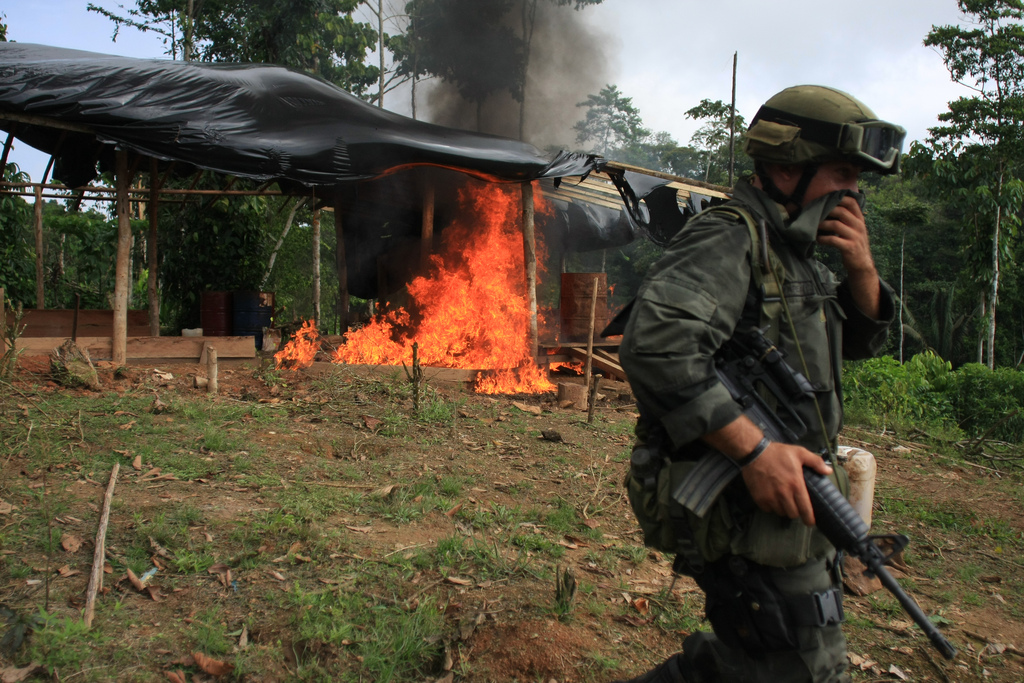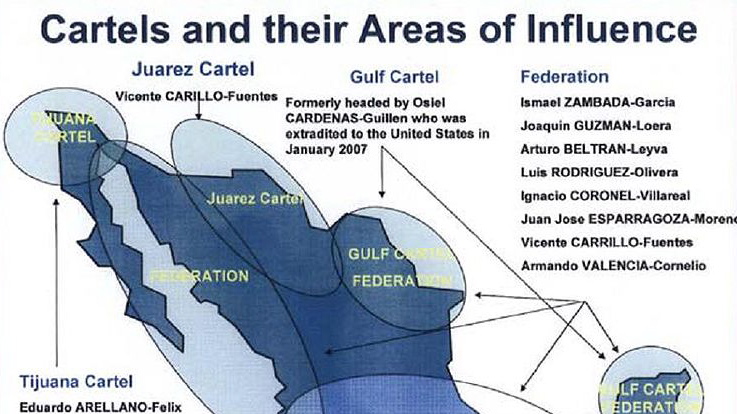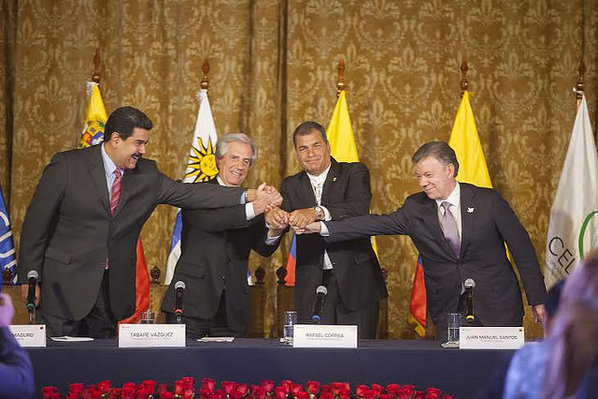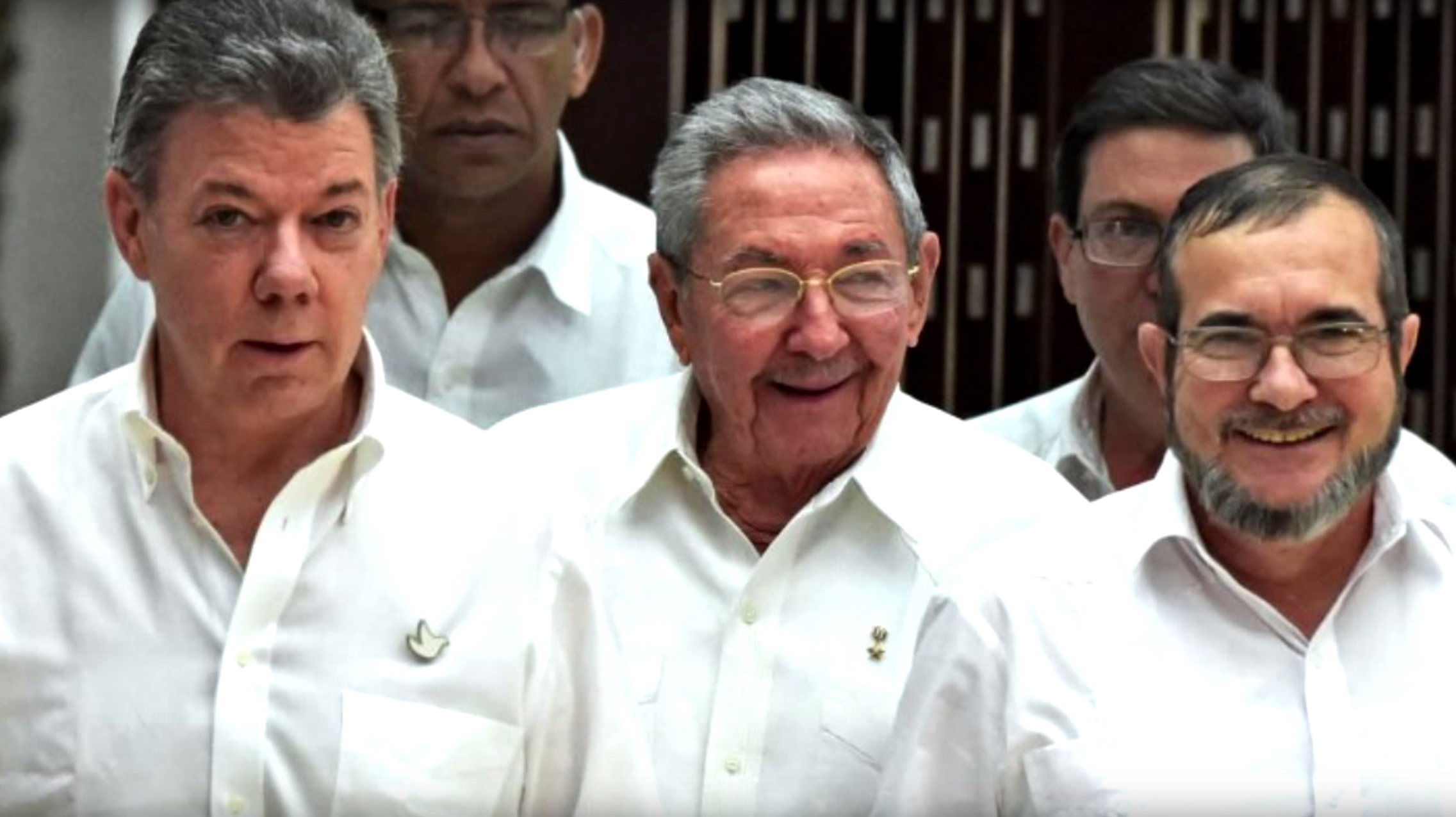
Andes, Colombia, Latin America: Week in Review
Colombia Announces Shift in Anti-Coca Policy
September 23, 2015 By Staff
Top Story — Colombia’s government on Tuesday announced it would increase its on-the-ground efforts to curb cocaine production following the end of a U.S. aerial fumigation program in May.
The new plan will provide technical assistance and, after five years, land titles for farmers who abandon growing coca — the raw material used in cocaine production. Farmers who do not comply will potentially face manual eradication, the preferred method of crop destruction in Peru and Bolivia, the world’s other two leading producers.
Over the past year, Colombia has resumed the role of the world’s leader in cocaine production following years of declines. As The Associated Press notes, part of this increase may be due to adaptation by drug traffickers to aerial spraying of glyphosate; a UN investigation last year found that more than a third of coca production was taking place in areas protected from spraying, like national parks.
Aerial spraying of glyphosate — a two-decade, U.S.-supported and operated program unpopular with many Colombians — was suspended by Santos in May after the release of a World Health Organization report suggesting the chemical may cause cancer.
In an apparent pre-emptive nod to likely opposition criticism, Santos said the policy shift was not evidence his government had gone soft on traffickers. His announcement followed by just a few days a statement by the head of the Supreme Court suggesting the body may support efforts to classify certain types of drug trafficking as “political” crimes, which may help prevent the extradition of certain FARC rebel leaders, with whom Santos is working on a peace agreement.
Headlines from the Western Hemisphere
North America
- The bodies of eight Mexican tourists killed in a Sept. 13 air attack by Egyptian security forces were returned to Mexico City on Tuesday for forensic examination.
- Eleven police officers were reportedly injured when over 200 policemen clashed with students who had commandeered 12 buses to travel to protests in the state of Guerrero, for the one-year anniversary of the disappearance of 43 teacher-trainee students from the town of Iguala.
- An angry mob in the Mexican state of Chiapas seized two men accused of car theft from a local jail and burned them to death.
- In an effort to halt the devaluation of the peso, Mexico’s central bank auctioned $200 million with promises to proceed with sales if the value of the currency continues to fall.
Caribbean
- Forecasters predict limited rainfall for the already parched Caribbean as the El Niño phenomenon gains strength and continues until early next year, worsening the most severe drought to hit the region in many years.
- The Haitian government will ban products produced in the Dominican Republic from crossing the land border separating the two nations beginning Oct. 1.
Central America
- Forty members of El Salvador’s Mara Salvatrucha gang were arrested on Tuesday on the periphery of the capital, San Salvador. The gang members face multiple murder, kidnapping and terrorism charges.
- Three Guatemalan judges were arrested Tuesday on charges ranging from corruption to money laundering, in relation to a months-long customs tax corruption scandal that led to the resignation and arrest of former President Otto Pérez Molina.
Andes
- Guyana’s President David Granger expressed alarm on Tuesday over an increase of Venezuelan military activity near their border in the wake of land disputes over oil-rich territory. President Granger’s remarks come just one day after the normalization of border relations between Venezuela and Colombia.
- Mass migration, highway construction and broad land right laws spur deforestation in Peru’s southeastern Amazonian region, a phenomena Al Jazeera America explores in the second installment of a two-part series.
Southern Cone
- Activities at a mine operated by the world’s largest gold-mining company, Barrick Gold, have been suspended as an Argentine judge investigates the causes of a cyanide spill there.
- China is offering reconstruction aid to Chile in the wake of last week’s earthquake and tsunami that caused extensive damage and killed 13 people.





